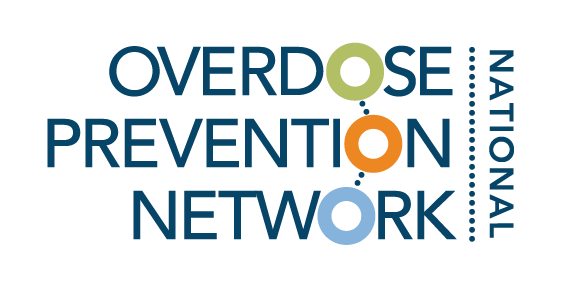
Resource Library
Toolkits, guides, and other resources vetted by experts in overdose prevention.
Filter by category and tags, or search by keyword (ex. COVID-19, harm reduction).
Nitrous Oxide Education Toolkit
Recently medical practitioners in Nevada County have seen an increase in patients being seen at the emergency department and other settings as a result of complications from recreational nitrous oxide use. These complications are often neurological, ranging from tingling in the extremities, loss of sensation and significant weakness to long-term neurological damage. Know Overdose Nevada County has made an educational toolkit to provide more information and treatment options.
Let’s Start Talking Booklet
the Let’s Talk and Let’s Start Talking booklets that OD Free Marin developed to support caregivers, parents, and families in discussing overdose prevention. It also offers information about the teen brain, how much they carry mentally, and how to can best support them.
Santa Cruz County School-Based Interventions for Substance Use & Overdose Prevention Brief Overview
Santa Cruz County has long prioritized youth substance use prevention through collaborative efforts like Community Prevention Partners and SafeRx Santa Cruz County. In light of new state legislation affecting schools, this guide provides schools with practical strategies, curricula options, and concrete resources to not only move into compliance, but to optimally support students' overall well-being.
Shatterproof Addiction Language Guide
Words matter, especially when talking about substance use disorder (SUD). Shatterproof recognizes the difficulty of making language changes across organizations and systems. That’s why they created training materials that are made available for everyone wanting to make a difference.
How to Thrive During the Holiday Season
The holidays can be a difficult time for many. That’s why Mid- America ATTC developed a holiday toolkit. This toolkit includes tips for people in recovery and those who support them, harm reduction techniques for those who want to cut back during the holidays, self-care ideas, LGBTQ+ and recovery resources, and more!
The New Drug Talk: Connect to Protect Flyer
A flyer for the The New Drug Talk Connect to Protect on how to talk to kids about fentanyl. It is a two-sided flyer, with one side in English and the other Spanish.
The New Drug Talk: Connect to Protect Toolkit
This toolkit provides you with content to amplify the New Drug Talk message and includes: resources to share on social media, messaging guidelines, and draft email outreach.
Partnership Mapping Tool Addendum
Strong partnerships are essential to the success of any coalition. Use this addendum tool in addition to the Partnership Mapping Tool to assess your coalition infrastructure, identify critical community collaborators and power brokers, and further how these partners can support coalitions’ overdose prevention strategies.
College Opioid Overdose Prevention Messaging Toolkit
The CDPH Office of Communications has developed a toolkit to college opioid overdose prevention messaging. In the toolkit are overdose prevention messaging resources and examples that supports reducing stigma to protect the lives of college students in California.
Youth Friendly Fentanyl & Opioid Overdose Prevention Toolkit
The CDPH Office of Communications has developed a toolkit to support fentanyl and opioid overdose prevention messaging. In the toolkit are overdose prevention messaging that supports reducing stigma to protect the lives of Californians.
Substance Use Prevention Communications Toolkit
The toolkit provides evidence-informed guidance for creating, delivering, and disseminating messages to prevent onset or escalation of substance use in youth aged 12-18 and build community support and readiness for substance use prevention.
Clinical Provider Quick Tips Addressing Substance Use in Primary Care Settings
"This Toolkit consists of a series of ""quick clinical tips""- bringing state-of-the-art resources and practical tools to busy clinicians addressing patient stimulant and fentanyl use in primary care
settings."
Let's Talk: A Toolkit for Navigating Teen Substance Use in the Tri-County Region: Monterey, San Benito, Santa Cruz 2022
According to the data, teens growing up in Monterey, San Benito and Santa Cruz counties have easy access and opportunity to use drugs and alcohol. This is a reality. But as parents and caregivers, we can help them navigate through these tough decisions. Where can we start? Know the facts, communicate openly, and listen to our teens.
Equity and Harm Reduction for Communities of Color
This tool created by CA Bridge focuses on reducing harms related to substance use in communities of color.
Readiness Assessment for Harm Reduction Vending Machines: A Decision Making Tool for Organizations and Communities
When considering a strategy like harm reduction vending machines it is critical to understand community context and to get buy-in from staff, key community stakeholders, partners, and program participants. To help with this, Bloomberg American Health Initiative fellows Callie Kaplan, Zach Kosinski, Nicole Barnes and Erin Russell, under the guidance of Dr. Susan Sherman, created a readiness toolkit to support agencies, community-based organizations, and advocacy groups to make informed decisions about the use of harm reduction vending machines in their communities.
Pregnancy and Substance Use: A Harm Reduction Toolkit
This toolkit was created for supporting pregnant and parenting people who use drugs, their loved ones, and their service providers. This toolkit was written in collaboration with the National Hard Reduction Coalition and the Academy of Perinatal Harm Reduction.
Public Safety-Led Community-Oriented Overdose Prevention Efforts (PS-COPE) Toolkit
The Public Safety-led Community-oriented Overdose Prevention Efforts (PS-COPE) Toolkit is a new approach to overdose prevention and response for Black, Indigenous and people of color (BIPOC) communities. It combines three proven models to enhance overdose prevention and response: trauma-informed care, recovery-oriented systems of care and procedural justice.
Racial Equity Impact Assessment Toolkit
The racial equity impact assessment toolkit can be a vital tool for preventing institutional racism and for identifying new options to remedy long-standing inequities.
Guide to Harm Reduction in the Emergency Department
While many medical professionals promote an abstinence-based approach to discussing drug use, offering tools and education around safer drug use supports patient health if they continue to use drugs. Harm reduction is the moral foundation and root practice of offering these tools and services. View this guide from the CA ED Bridge Program on how to establish a harm reduction program in your hospital and easily access related resources.














